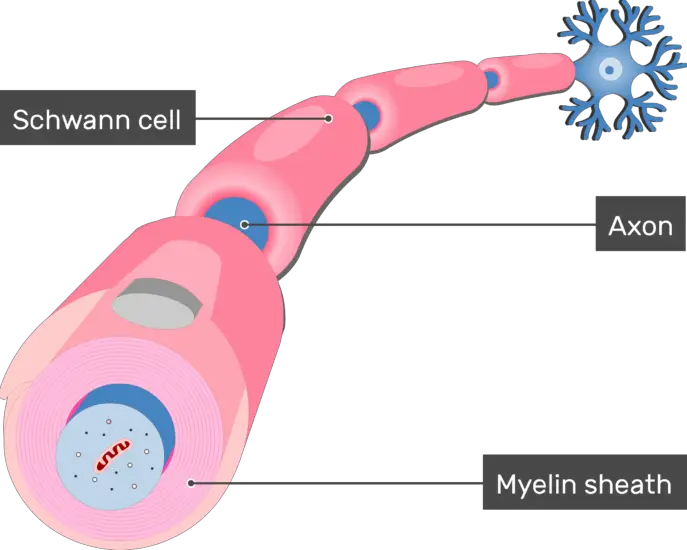Intellectual growth should commence at birth and cease only at death
Patience and practice are the core element if you want to learn anything in the world, whether it’s some kind of skill such as playing music or swimming. All you need is right amount of patience and practice to be good at anything with some tips which we will be sharing and you need to have in mind while learning anything in the world.
Before getting directly onto the tips, it’s important to understand how our brain process information and learn new things. So that we can use this knowledge about our brain for our benefit when we will be learning something for the first time.
Table of Contents
How our Brain Learns New Things:
Practice is the key to get anything perfect but nobody can become an expert from the start and to become one, you need practice. All the action and thinking process is done by our brain and with practice we make our brain stronger in that particular action.
Before learning about how our brain processes information, we need to know the meaning of practice. Practice means repeating the same action again and again with the goal of improvement so that you can do that thing with more ease and comfortably.
Whenever we do any action, the “action” is done by our brain with the help of electric signal through our nervous system to the hand, leg or any other part of the body. Even a simple action like, walking or running requires these signal to travel from nervous system to the muscle.
Nervous system is huge but we will only be talking about chain of fibre called “axon“. These fibres are the ones that carry the signals from brain to the body. You must be thinking, how does practice affects all this and what is the relation between this and learning new things ?
 |
| Axon and Myelin |
Well, actually it’s not axon which changes with practice but the fatty substance called “Myelin” which seems to change with practice. Axon transfers the signal from brain to body muscle and myelin works as insulin in electric cable. The job of myelin is to avoid any energy loss when electric charge travels through axon.
With more practice, the layer of myelin seems to increase which results in more ease in the information travel which takes place from the brain to body through axon. To sum everything up in simple terms, with practice your brain will be easily transfer information to muscle.
The 10000 and 20 Hour Rule:
So now we know, in order to get better or learn anything. The key is practice but with this, a new question arises. “How much practice do we need to get before getting good at something?”.
Actually we don’t have any solid evidence of how much hour of practice we need, but we do have a number which many people believe works well. It’s called “10000 hour rule“.
10000 hour rule is popularised by Malcom Gladwell in his bestseller book Outliers. According to this rule, all a person needs to become master or expert in any given field and skill is 10000 hours of intensive practice and anyone can become an expert in it.
Well is this theory true ? That’s actually subjective and depends from person to person but 10000 hours of intensive practice can actually improve a persons skills to exponential rate according to me. To understand this more clearly, we need to define two factors here: 1. What is intensive practice 2. How much is 10000 hours ?
What Does Intensive Practice Mean ?
Here the term ‘intensive training” does not mean you have to train hard but actually means you need to give your 100% focus on only one thing which you are practising. Avoid any kind of distraction or things which can make you lose your focus from practice.
This does sounds like an easy task but in practical it’s not. Focusing only on one thing is actually pretty hard specially in the modern world where there are tons of distractions available all around us but if you are able to give your full focus only on practice avoiding anything else, the reward would be worth it.
How Much is 10000 Hours ?
Well 10000 hours of intensive practice does sound a lot and if you convert this number into days, it will be 400 days or more than a year but just converting it into number of days is not practical visualisation of the situtation.
To understand how long time it is, 10000 hours would equal to around 20 hours a week time for almost 10 years and I am sure now this much sounds like a lot of time but in reality, we do waste lot more time in other things. For example: An average person wastes around 5 hours watching TV in a week and in the age of internet, an average person spends around 15-20 hours a week scrolling on social media.
So if we can invest that time into something more productive, 10000 hours doesn’t seems like a lot and also make sure that this number of hours are needed to become an expert at anything for which people spend years to learn but if your goal is to just become good in some skill(s), that can be achieved way before your 10,000 hours get completed.
20 hours rule – A Different Approach:
10,000 hours does sound like a lot of time and it actually is, but that is for becoming an expert at something. If you look at the “learning curve“, you will notice that it takes lot less time to get relatively good at something. How much time you ask ?
 |
| Learning Curve |
Only 20 hours! According to Josh Kaufman, you will only need to have 20 hours of intensive practice to get at basic level good at something. 20 hours is just 45 mins everyday for a month and you can acquire any skill you want.
Many people wonder, if it’s that easy to acquire any new skill every month, why people don’t do it and the answer is simple. People are not much aware of it and have lack of time and focus. All we need to do is to manage our time in more better way and you can get close to becoming best version of yourself every month.
Tips To Learn Things Fast:
To learn anything you want, the only key thing is practice but practice is more effective when done smartly. Here are some tips you can follow to practice and learn anything faster:
1. Talk To Someone Who Has Already Learned It:
Having conversation with people who already know the skills and stuff you are going to learn will help you prepare on what comes next. You will know the mistakes they did which you don’t have to repeat while learning or things you need to focus on the most. This can save you a lot of time and will make your practice more effective. There are things which can only be learnt from experience or people who have experienced it.
2. Learn in Short Bursts:
With increase in number of distractions day by day, the attention span of an average human being has decreased significantly. That’s why it gets hard to intensively focus on one thing for a long time.
The best thing to do in this scenario is, instead of practising for long hours with less focus, you can learn things in short burst of 20-30 min a time but with full focus. This way, you can practice more effectively with your full focus.
3. Focus on Basics and Fundamentals:
Fundamentals and basics are important, whether it’s about studies or any skill. Try to get your basics clear because when your fundamentals are strong. You can understand and learn complex things significantly faster.
4. Teaching Things you Have Learned to Someone Else:
This is actually also called as “Feynman technique”. According to this, if you can make a 12 year old understand the complex thing or skill you learned then you know the things well but in case you cannot make them understand, this clearly means that you didn’t understand it well enough.
So by teaching what you learn to others or a small child, you are basically teaching yourself again and getting your fundamentals cleared.
5. Enjoy the Learning Process and Self Correct Yourself:
This is the last thing but the most important one. The best thing about learning anything is not in the destination but in the journey. If you enjoy the journey and the learning process, you will get better with time but if you are learning any skill or something just for the sake of it without any interest. You will not enjoy the process and will take lot more time. That’s why always invest your time into learning something which you are interested and curious in.

